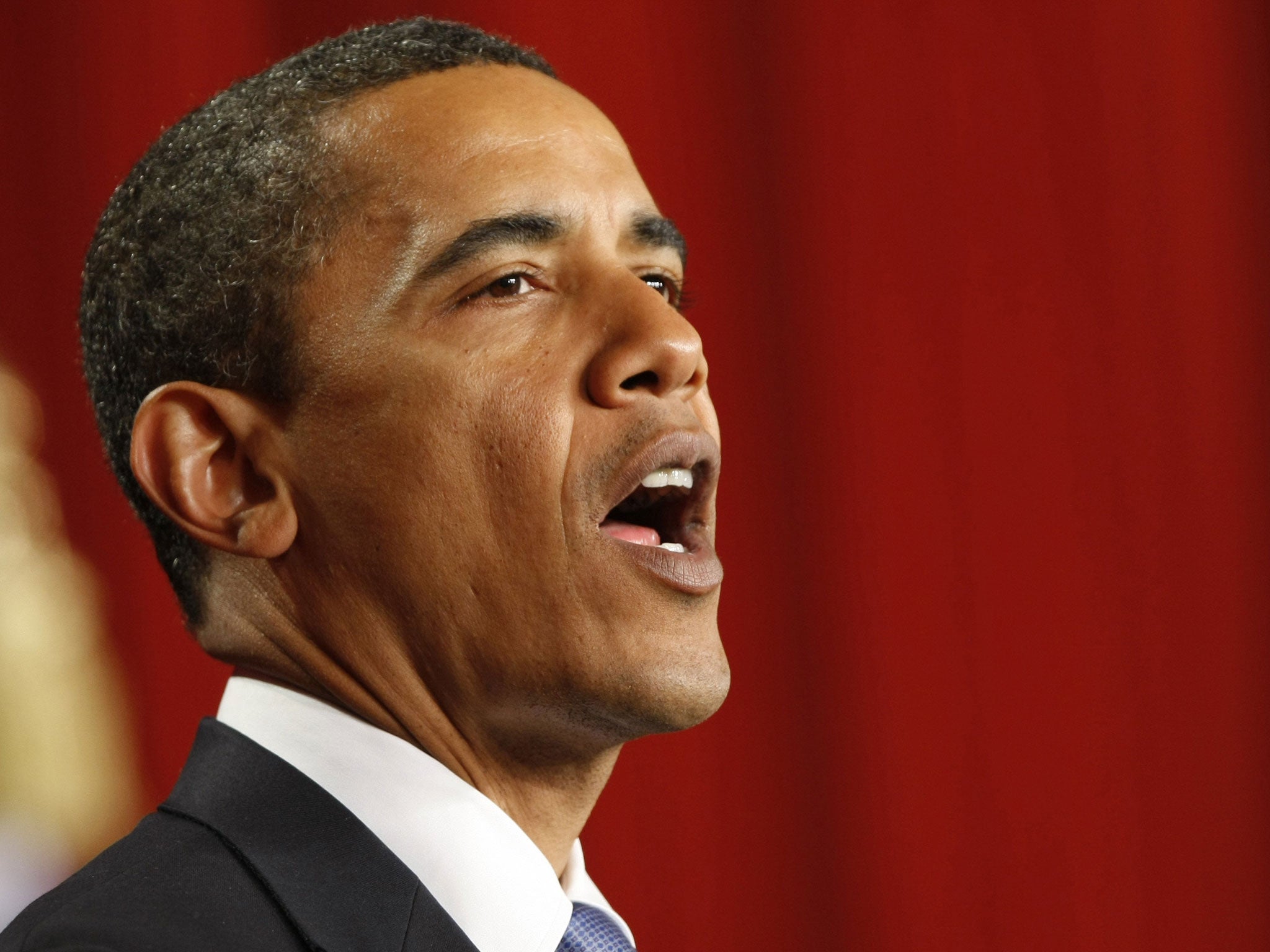Isolated Barack Obama must decide if US should act alone over Syria strikes
After British Parliament rejects military intervention, there is growing irritation in Washington with David Cameron’s inability to deliver support

Your support helps us to tell the story
From reproductive rights to climate change to Big Tech, The Independent is on the ground when the story is developing. Whether it's investigating the financials of Elon Musk's pro-Trump PAC or producing our latest documentary, 'The A Word', which shines a light on the American women fighting for reproductive rights, we know how important it is to parse out the facts from the messaging.
At such a critical moment in US history, we need reporters on the ground. Your donation allows us to keep sending journalists to speak to both sides of the story.
The Independent is trusted by Americans across the entire political spectrum. And unlike many other quality news outlets, we choose not to lock Americans out of our reporting and analysis with paywalls. We believe quality journalism should be available to everyone, paid for by those who can afford it.
Your support makes all the difference.With Britain no longer prepared to participate in a military strike on Syria and a growing number of the US Congress demanding a right of approval, an increasingly lonely Barack Obama was left last night confronted with an uncomfortable choice between either going it more or less alone or backing down.
The failure by David Cameron, the British Prime Minister, to shepherd an authorising motion through parliament, considerably complicates the position of Mr Obama, making him appear more isolated in the world and possibly emboldening his congressional critics to raise their voices in opposition to any military involvement in Syria.
The first indications from within the White House, however, were that Britain breaking away would not deter him from moving forward, however, and nor would the absence of any resolution at the United Nations. Indeed, because Mr Obama no longer has to wait for a second debate in London he could move more swiftly.
National Security Council spokeswoman Caitlin Hayden said yesterday that Obama believes there are core US interests at stake in the Syrian crisis and that is his main priority going forward. “President Obama’s decision-making will be guided by what is in the best interests of the United States,” she said after Mr Cameron’s defeat.
Even before the London vote there were murmurs in Washington and New York of growing irritation with Mr Cameron’s inability to deliver on the statements he had made earlier in the week in support of Mr Obama and of action to punish Syria for using chemical weapons. The parliamentary revolt deals a damaging blow to the so-called special relationship that Britain in particular is always so anxious to emphasise and nurture.
Even as British MPs were voting, top national security officials, including including Secretary of State John Kerry and Defence Secretary Chuck Hagel, were laying out the justification for a military strike to congressional leaders by video-conference. A redacted version of that presentation, minus classified passages, will likely be unveiled to the wider American public, probably later today.
President Obama continues to assert that the regime ordered the use of chemical weapons killing 100 people, and that such an act cannot go by without punishment. “We have concluded that the Syrian government in fact carried these out,” he told PBS on Wednesday night. Yet he faces headwinds selling that case with sources indicating that the intelligence dossier as it stands now falls far short of definitively linking the attacks to Assad.
One source who is familiar with it told the Associated Press that it is “no slam dunk” that Assad or his top lieutenants ordered the attack, a choice of words that has clear undertones. It was the then CIA director, George Tenet, who in 2002 boasted that it was a “slam dunk” that Saddam Hussein had weapons of mass destruction in Iraq. Those weapons, of course, were never found.
Earlier, White House aides were continuing to put out the message that Mr Obama did not feel he had to have external backing form the UN or elsewhere to act. “We have been trying to get the UN Security Council to be more assertive on Syria even before this incident,” Benjamin Rhodes, the deputy national security adviser told the New York Times in an interview. “The problem is that the Russians won’t vote for any accountability.”
By the most recent count, meanwhile, something over 150 members of Congress are now asking Mr Obama not to act without giving them an opportunity to debate the matter first. But most observers predict that were the issue to be put to a vote, Mr Obama would very likely suffer a similar humiliation to that of Mr Cameron and for that reason he may be grateful Congress is in recess for two more weeks.
Among those pushing for Mr Obama to defer to Congress is Barbara Lee, a Democrat congresswoman from California, who has a letter to that effect now signed by 50 of her colleagues, all members of Mr Obama’s own party. “While the use of chemical weapons is deeply troubling and unacceptable, I believe there is no military solution to the complex Syrian crisis,” she said. “Congress needs to have a full debate before the United States commits to any military force in Syria – or elsewhere.”
Join our commenting forum
Join thought-provoking conversations, follow other Independent readers and see their replies
Comments